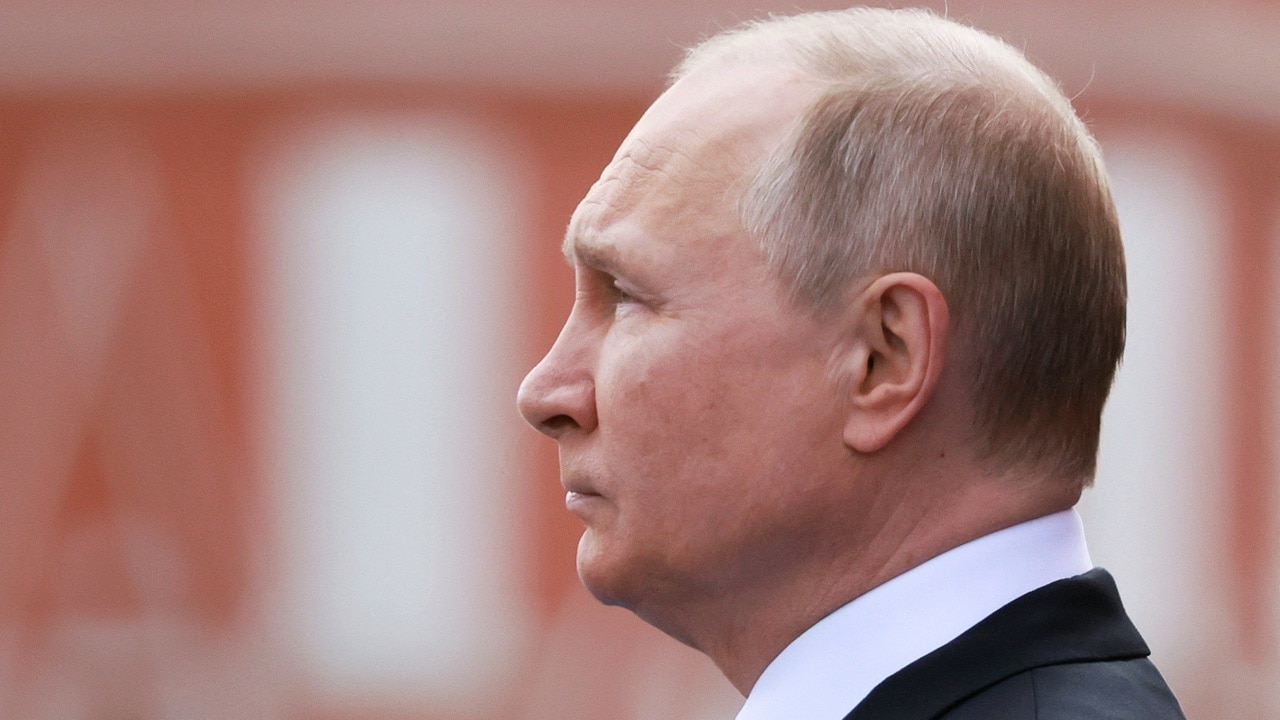First, the United States warns Russia of an imminent terrorist attack. Then, Iran does. Finally, the New York Times reports that the CIA actually told the Russians that Crocus City Hall was a potential target.
And yet, despite such a barrage of evidence from friendly and unfriendly sources, Russia does nothing. Which raises the obvious question: Are Russia’s self-elected president Vladimir Putin and his security services that dumb or that complicit?
If the answer is dumb, then the degree of incompetence is simply extraordinary. If the answer is complicit and Putin and his comrades were somehow involved in organizing the terrorist attack, then the degree of their indifference to life is anything but extraordinary. In fact, it’s quite ordinary. It’s business as usual.
So, which is it—stupidity or complicity?
Putin’s Russia has amply demonstrated that it’s screamingly corrupt, inefficient, and ineffective. Moscow and St. Petersburg are shiny modern cities. The rest of Russia is a mess. The economy is in the hands of corrupt bureaucrats and criminal oligarchs. The army has struggled for two years to defeat a much smaller and weaker opponent. The secret police is as interested in get-rich-quick schemes as it is in stamping out gay “terrorists” and democratic “extremists.”
None of this is new. The Soviet Union collapsed in no small measure because totalitarianism and central planning created dysfunctional political and economic systems that encouraged corruption, inefficiency, and ineffectiveness. Imperial Russia was even worse, as both Russians and visiting Europeans attested.
As the Marquis de Custine wrote in Russia in 1839, “The nature of its Government is interference, negligence and corruption. You rebel against the notion that you could become accustomed to all this, yet you do become accustomed to it. In that country, a sincere man would be taken for an idiot…. A wealth of unnecessary and petty precautions here engenders a whole army of clerks, each of whom carries out his task with a degree of pedantry and inflexibility, and a self-important air solely designed to add significance to the least significant employment.” Unsurprisingly, “The profession of misleading foreigners is one known only in Russia … everyone disguises what is bad and shows what is good before the master’s eyes.” And this is a description of Russia after the Westernizing reforms of the “great” Peter and Catherine!
Incompetence is, thus, as much an integral part of Mother Russia’s vaunted “soul” as is the penchant for philosophizing and seeking the answer to the perennial Russian question, “Who is to blame?” The answer is sometimes we Russians; more often it’s some outside force—the West, the world, the Devil.
It is, thus, perfectly possible that Putin’s megalomaniacal ambitions and blindness to reality produced an inability to see what was manifestly clear to his friends and foes—that a massive attack was in the works.
Putin Working with ISIS-K?
But it’s no less plausible that Putin and his comrades were involved in planning and executing the attack, possibly on their own, possibly in cahoots with ISIS-K. As Janusz Bugajski, Senior Fellow at the Jamestown Foundation, has argued: “The Kremlin was quick to blame Ukraine for the Moscow massacre by four Tajik nationals, despite claims by ISIS-Khorasan (a branch of the Islamic State terrorist network) that it was responsible. But as footage of the incident emerged, evidence increasingly pointed to an inside job by some elements of Russia’s internal security forces who may have hired the gunmen. Whether they were members of ISIS acting on behest of the FSB remains unclear especially given the murky ties between Moscow and the terrorist outfit.”
Critics will accuse Bugajski and a host of similarly-minded Russian opposition analysts of engaging in unfounded conspiracy theories, but the one constant in Russian history, and especially in the 25 years of Putin’s reign, is that conspiratorial behind-the-scenes plotting and back-stabbing is the norm, not the exception. And that means that the burden of proof is on the critics, not the theorists. After all, keep in mind that Putin murdered hundreds of Russians in 1999 by means of “mysterious” explosions that brought down several apartment buildings. He’s also killed his political opponents and managed to have large numbers of prominent officials fall from windows.
Can Russia, therefore, have been both dumb and complicit, or are these two explanations mutually exclusive? Logic argues for mutual exclusivity, but Russian history argues for the compatibility of incompatible things. Putin and the security services could have been involved in planning the attack while being too incompetent to appreciate that ISIS-K might have its own agenda and priorities.
Whatever the answer—stupidity or complicity—Mother Russia and her man Putin come out of the affair with egg on their faces. Such rank incompetence bodes ill for Russia’s ability to win the war, even given its overwhelming advantage in numbers of soldiers, missiles, and shells and America’s inability to agree on aid to Ukraine. Alternatively, such breathtaking indifference to Russian lives bespeaks a political system that is obviously willing and desperate enough to do anything to hang on to power. Such a system isn’t just inspired by Nazi ideals. It’s weak, and the weak never do well in Russia.
About the Author: Dr. Alexander Motyl
Dr. Alexander Motyl is a professor of political science at Rutgers-Newark. A specialist on Ukraine, Russia, and the USSR, and on nationalism, revolutions, empires, and theory, he is the author of 10 books of nonfiction, including Pidsumky imperii (2009); Puti imperii (2004); Imperial Ends: The Decay, Collapse, and Revival of Empires (2001); Revolutions, Nations, Empires: Conceptual Limits and Theoretical Possibilities (1999); Dilemmas of Independence: Ukraine after Totalitarianism (1993); and The Turn to the Right: The Ideological Origins and Development of Ukrainian Nationalism, 1919–1929 (1980); the editor of 15 volumes, including The Encyclopedia of Nationalism (2000) and The Holodomor Reader (2012); and a contributor of dozens of articles to academic and policy journals, newspaper op-ed pages, and magazines. He also has a weekly blog, “Ukraine’s Orange Blues.”

